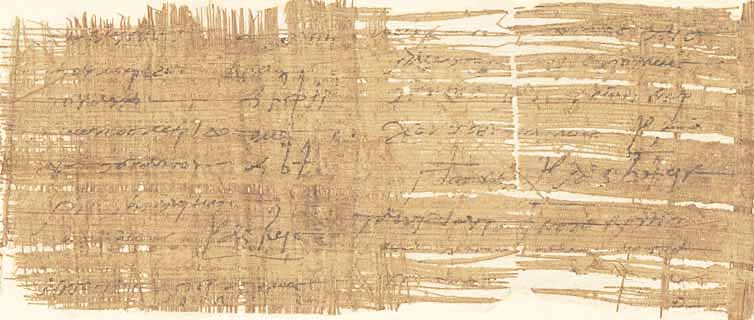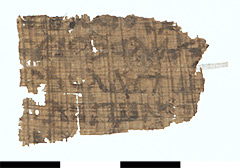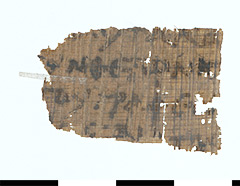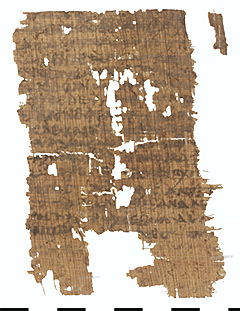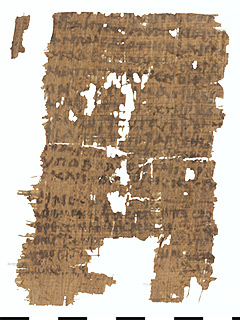|
Material: Papyrus |
Erwerbung: Grabung von Otto Rubensohn in Eschmunen 1905 (Blechkiste 316).
Fundort: Eschmunen |
|
Form: Kodex |
Standort:
Papyrusdepot |
|
Umfang: P. 21163 (→) 16 Zeilen; P. 21163 (↓) 18 Zeilen; P. 13231 G Fr. e (→) 5 Zeilen; P. 13231 G Fr. e (↓) 4 Zeilen. |
Beschriftung:
parallel und quer zu den Fasern |
|
Sprache: Griechisch |
Andere Seite:
Fortsetzung des Textes |
|
Textgattung: literarisch (Prosa) |
Schreibweise: |
|
Datierung: 4. – 5. Jh. n.Chr. |
Herkunft: |
Inhalt:
Philologische Miszellen (?), Aristarchos und die Analogiedefinition von Apollonios Dyskolos werden erwähnt. |
Publikation:
M. Maehler, P. Berol. 21163: Philologische Miszellen?, in: Miscellanea Papyrologica [Pap.Flor. VII] 149–162 (P. 21163+13231 G Fr. e); BKT IX 66 (G. Ioannidou) (P. 21163); M. Caroli, Un’antica miscellanea filologica (BKT IX, 66 + P.Berol. inv. 13231G, fr. e = LDAB 5775), Segno e Testo 19, 2021, 1–35.
Weitere Literatur:
Cavallo - Maehler, Greek Bookhands 110, Nr. 50b; E. Crisci, La produzione libraria nelle aree orientali di Bisanzio nei secoli VII e VIII: i manoscritti superstiti, in: Prato, I manoscritti greci 10; G. Nocchi Macedo, Aristophanes in Antiquity: Quotations and Testimonia in Papyri, APF 68, 2022, 263f. |
Kataloge:
TM 65396 LDAB 5775 MP3 2144.1 |
Bemerkungen:
Datierung nach Cavallo - Maehler und Crisci. In den Editionen von Maehler und Ioannidou ist P. 13231 G Fr. e der Platte E zugeschrieben und als P. 13231 E Fr. 11 bezeichnet; das Fragment befindet sich heute jedoch als Fr. e in Platte G. |
|
|


